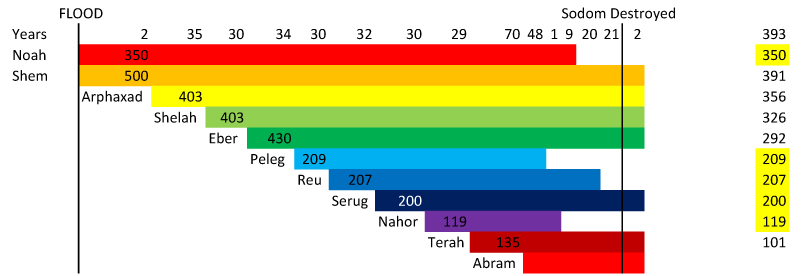I don’t want to leave the impression that I am so perfected in love that I never fear punishment.[1] I’m a creature of habit. The possibility that God is punishing me for something is the first thing that comes to mind whenever it seems that things aren’t going my way. What I’m saying is, I think that is a bad habit. If I trust Him instead of reacting in fear I find that, though things aren’t going my way, the way they are going is just as good if not better than my way (though comparing and contrasting actual events with my imagination or fears is a dubious occupation at best).
Surely goodness and mercy shall follow me all the days of my life,[2] the 23rd Psalm ends. That translation sounded like what I thought I “knew.” God’s goodness and mercy would follow in the train of my glory, confirming my virtue, if and only if I kept the law. I didn’t, not so much. So I didn’t expect (though I sometimes still hoped for) God’s goodness and mercy. It was only later after his goodness and mercy hunted me down, tackled me to the ground and held me there that I began to see it and Him for who He is. Later I learned that the verse was badly translated. Surely your goodness and faithfulness will pursue me all my days,[3] is much more to the point.[4] The rabbis who translated the Septuagint chose καταδιώξεταί,[5] follow hard upon, pursue closely.
The desktop image on the computer I use most often to study the Bible is a frame from Lars Von Trier’s “Antichrist.” She is on her side, facing away from us, recovering from the trauma of snipping off her clitoris. Her “familiars,” the three beggars, wait patiently beside her. She had an oracle that someone would die when they arrived. In a few moments her husband will fulfill that oracle, crushing her larynx to silence the voice that spoke of an evil he rejected as implausible, and finally choking the life out of the woman he claimed to love. This image by contrast reminds me of the Sunday I didn’t cut off my penis, and the different way I heard two passages of Scripture before and after that intervention.
|
Matthew 18:8, 9 (NET) |
Romans 6:3-6 (NET) |
| If your hand or your foot causes you to sin, cut it off and throw it away. It is better for you to enter life crippled or lame than to have two hands or two feet and be thrown into eternal fire. And if your eye causes you to sin, tear it out and throw it away. It is better for you to enter into life with one eye than to have two eyes and be thrown into fiery hell. | Or do you not know that as many as were baptized into Christ Jesus were baptized into his death? Therefore we have been buried with him through baptism into death, in order that just as Christ was raised from the dead through the glory of the Father, so we too may live a new life. For if we have become united with him in the likeness of his death, we will certainly also be united in the likeness of his resurrection. We know that our old man was crucified with him so that the body of sin would no longer dominate us, so that we would no longer be enslaved to sin. |
Before that Sunday, though they may have seemed harsh, Jesus’ words recorded by Matthew (and Mark,[6]) didn’t seem out of line when compared to a hero of the faith[7] like Jephthah who sacrificed his daughter to keep his oath. And surely Paul’s words were metaphorical, a figure of speech, not to be taken literally. After that Sunday I began to perceive cutting off my penis, or a hand or a foot as hyperbole, but being buried with [Christ] through baptism into death as the literal truth. And to this day I’m not sure how to justify that opinion from the texts themselves apart from the (now obvious) fact that my hand or my foot, or even my penis, never causes (σκανδαλίζει, a form of σκανδαλίζω; or, entices) me to sin.
I introduce the story of the rich man and Lazarus[8] this way despite my sense that its context indicates reasonably clearly that it is not to be taken too literally. Jesus’ illustration which precedes it of an unrighteous manager cheating his master/employer was certainly not a recommendation of good business practice. His points were two: 1) the people of this world are more shrewd in dealing with their contemporaries than the people of light;[9] and 2) make friends for yourselves by how you use worldly wealth [one’s own presumably[10] rather than someone else’s], so that when it runs out you will be welcomed into the eternal homes.[11]
In Mark’s Gospel account Jesus’ was quoted, saying, “How hard it is for the rich to enter the kingdom of God!” The disciples were astonished at these words. But again Jesus said to them, “Children, how hard it is to enter the kingdom of God![12] Jesus’ disciples were not contemporary socialists who assumed that the rich were swindlers and thieves who took whatever they had from the poor and working classes. Their astonished question, “Then who can be saved?”[13] indicates to me they believed that the rich were blessed by God, that their wealth was a sign of his approval and favor. And I assume they believed this because their religious teachers believed and taught it. Jesus said (Luke 16:13, 14 NET):
“No servant can serve two masters, for either he will hate the one and love the other, or he will be devoted to the one and despise the other. You cannot serve God and money.” The Pharisees (who loved money) heard all this and ridiculed him.
This is the audience for, and the immediate context of, the story of a rich man who dressed in purple and fine linen…who feasted sumptuously every day. But at his gate lay a poor man named Lazarus whose body was covered with sores, who longed to eat what fell from the rich man’s table. In addition, the dogs came and licked his sores.[14] In other words, Lazarus was “cursed” by God.
Both men died. The rich man in hell (ᾅδῃ, a form of ᾅδης), as he was in torment (βασάνοις, a form of βάσανος),…looked up and saw Abraham far off with Lazarus at his side.[17] Hell is not γέεννα here but ᾅδῃ, Hades. Peter quoted a Psalm in his first sermon after receiving the Holy Spirit: Therefore my heart was glad and my tongue rejoiced; my body also will live in hope, because you will not leave my soul in Hades (ᾅδην, another form of ᾅδης), nor permit your Holy One to experience decay.[18] The rabbis who translated the Septuagint chose ᾅδην for Sheol (sheʼôl).
|
Peter (NET) |
Blue Letter Bible (Septuagint) |
Parallel Greek Text (NET) |
| …because you will not leave my soul in Hades, nor permit your Holy One to experience decay.
Acts 2:27 (NET) |
ὅτι οὐκ ἐγκαταλείψεις τὴν ψυχήν μου εἰς ᾅδην οὐδὲ δώσεις τὸν ὅσιόν σου ἰδεῖν διαφθοράν
Psalm 16:10 |
ὅτι οὐκ ἐγκαταλείψεις τὴν ψυχήν μου εἰς ᾅδην οὐδὲ δώσεις τὸν ὅσιον σου ἰδεῖν διαφθοράν.
Acts 2:27 |
David by foreseeing this, Peter explained, spoke about the resurrection of the Christ, that he was neither abandoned to Hades (ᾅδην, another form of ᾅδης), nor did his body experience decay.[19] Jesus said: And you, Capernaum, will you be exalted to heaven? No, you will be thrown down to Hades (ᾅδου, another form of ᾅδης)![20] And I tell you that you are Peter, and on this rock I will build my church, and the gates of Hades (ᾅδου, another form of ᾅδης) will not overpower it.[21] Do not be afraid! I am the first and the last, and the one who lives! I was dead, but look, now I am alive – forever and ever – and I hold the keys of death and of Hades (ᾅδου, another form of ᾅδης)![22] Three more times in Revelation (6:8; 20:13, 14) Hades was personified (ὁ ᾅδης). The NET translators only translated Hades as hell in the story of the rich man and Lazarus, which is progress.[23]
Of course, they also translated βασάνοις torment. It was translated afflictions the only other place it occurs outside of the story of the rich man and Lazarus: Jesus went throughout all of Galilee, teaching in their synagogues, preaching the gospel of the kingdom, and healing all kinds of disease and sickness among the people. So a report about him spread throughout Syria. People brought to him all who suffered with various illnesses and afflictions (βασάνοις, a form of βάσανος), those who had seizures, paralytics, and those possessed by demons, and he healed them.[24] Perhaps they had good reason, for the rich man called out, Father Abraham, have mercy on me, and send Lazarus to dip the tip of his finger in water and cool my tongue, because I am in anguish (ὀδυνῶμαι, a form of ὀδυνάω) in this fire (φλογὶ, a form of φλόξ).[26]
The rich man was clearly thirsty, but was he in anguish in hell? After the twelve-year-old Jesus stayed behind in Jerusalem for three days, listening to [the teachers] and asking them questions,[27] His mother said to him, “Child, why have you treated us like this? Look, your father and I have been looking for you anxiously (ὀδυνώμενοι, a form of ὀδυνάω).”[28] And the Ephesian elders were especially saddened (ὀδυνώμενοι, a form of ὀδυνάω) by what [Paul] had said, that they were not going to see him again.[29] But the rich man was in this fire (φλογὶ, a form of φλόξ), surely that must mean he was being tortured in hell.
After forty years had passed, Luke recounted Stephen’s history lesson, an angel appeared to him in the desert of Mount Sinai, in the flame (φλογὶ, a form of φλόξ) of a burning (πυρὸς, a form of πῦρ) bush.[30] Other writers used forms of φλόξ as follows. The writer of Hebrews quoted, He makes his angels spirits and his ministers (λειτουργοὺς, a form of λειτουργός) a flame (φλόγα, another form of φλόξ) of fire[31] (πυρὸς, a form of πῦρ). Another form of λειτουργός was translated authorities in, For this reason you also pay taxes, for the authorities (λειτουργοὶ) are God’s servants devoted to governing.[32] Paul was a minister (λειτουργὸν, another form of λειτουργός) of Christ Jesus to the Gentiles who served the gospel of God like a priest.[33] Epaphroditus was my brother, coworker and fellow soldier, and your messenger and minister (λειτουργὸν) to me in my need,[34] Paul wrote the Philippians.
Jesus’ head and hair were as white as wool, in John’s vision on Patmos, even as white as snow, and his eyes were like a fiery (πυρὸς, a form of πῦρ) flame (φλὸξ),[35] and, His eyes are like a fiery (πυρός, a form of πῦρ) flame (φλὸξ).[36] Jesus described Himself as the Son of God, the one who has eyes like a fiery (πυρός, a form of πῦρ) flame (φλόγα, another form of φλόξ) and whose feet are like polished bronze.[37] Paul wrote however, With flaming (φλογός, another form of φλόξ) fire (πυρὶ, another form of πῦρ) he will mete out punishment (ἐκδίκησιν, a form of ἐκδίκησις) on those who do not know God and do not obey the gospel of our Lord Jesus.[38] Perhaps that was why the rich man was in anguish in this fire.
But Abraham said, “Child, remember that in your lifetime you received your good things and Lazarus likewise bad things, but now he is comforted here and you are in anguish (ὀδυνᾶσαι, another form of ὀδυνάω).”[39] So was the rich man simply thirsty and anxious or saddened because he and Lazarus and the Pharisees and Jesus’ disciples expected him to be blessed and favored by God? If he had been hardened as one of the objects of wrath prepared for destruction[40] why didn’t he blaspheme the name of God like those who were tossed…into the great winepress of the wrath of God?[41]
Thus people were scorched by the terrible heat, yet they blasphemed the name of God, who has ruling authority over these plagues, and they would not repent and give him glory.[42] They blasphemed the God of heaven because of their sufferings and because of their sores, but nevertheless they still refused to repent of their deeds.[43] And gigantic hailstones, weighing about a hundred pounds each, fell from heaven on people, but they blasphemed God because of the plague of hail, since it was so horrendous.[44]
Granted, the rich man didn’t exactly repent either, though I’m not entirely clear how he might have repented of receiving good things in his lifetime, the stated reason why he was in anguish, anxious or saddened in a flame like the burning bush, one of God’s ministers or the fiery eyes of Jesus. But when he couldn’t get any water from Abraham or Lazarus because a great chasm had been fixed between[45] them, he still didn’t blaspheme God. “Then I beg you, father”, he said, “send Lazarus to my father’s house (for I have five brothers) to warn them so that they don’t come into this place of torment (βασάνου, a form of βάσανος; or affliction).”[46] And here Abraham delivered the first of Jesus’ two points to this illustration: 1) They have Moses and the prophets; they must respond to them.[47]
In other words Moses and the prophets delivered the same message as Jesus, according to Jesus. Then the rich man said, “No, father Abraham, but if someone from the dead goes to them, they will repent.”[48] Again, Abraham spoke Jesus’ second point to this illustration: 2) If they do not respond to Moses and the prophets, they will not be convinced even if someone rises from the dead”[49] And these two points serve his major point that what is highly prized among men is utterly detestable in God’s sight.[50] In other words, while the rich man’s appearance (dressed in purple and fine linen…[feasting] sumptuously every day) may have impressed other people (You are the ones who justify yourselves in men’s eyes, Jesus told the Pharisees), God was not so impressed (but God knows your hearts).[51]
And in that flame like the burning bush, one of the ministers of God or Jesus’ fiery eyes the rich man reconsidered his wasted life (Psalm 139:7, 8 NET).
Where can I go to escape your spirit? Where can I flee to escape your presence? If I were to ascend to heaven, you would be there. If I were to sprawl out in Sheol [Septuagint: ᾅδην, another form of ᾅδης] there you would be.
Who knows? Perhaps I’m meant to take the rich man’s thirst in the psalmist’s sense (Psalm 42:1-5 NET):
As a deer longs for streams of water, so I long for you, O God! I thirst for God, for the living God. I say, “When will I be able to go and appear in God’s presence?” I cannot eat, I weep day and night; all day long they say to me, “Where is your God?” I will remember and weep! For I was once walking along with the great throng to the temple of God, shouting and giving thanks along with the crowd as we celebrated the holy festival. Why are you depressed, O my soul? Why are you upset? Wait for God! For I will again give thanks to my God for his saving intervention.
[4] The note in the NET reads: “The use of רָדַף (radaf, ‘pursue, chase’) with טוֹב וָחֶסֶד (tov vakhesed, ‘goodness and faithfulness’) as subject is ironic. This is the only place in the entire OT where either of these nouns appears as the subject of this verb רָדַף (radaf, ‘pursue’). This verb is often used to describe the hostile actions of enemies. One might expect the psalmist’s enemies (see v 5) to chase him, but ironically God’s ‘goodness and faithfulness’ (which are personified and stand by metonymy for God himself) pursue him instead. The word ‘pursue’ is used outside of its normal context in an ironic manner and creates a unique, but pleasant word picture of God’s favor (or a kind God) ‘chasing down’ the one whom he loves.”
[10] Luke 16:10b (NET)
[18] Acts 2:26, 27 (NET) Table
[19] Acts 2:31 (NET) Table
[23] The King James translators chose hell for every instance of ᾅδης. Addendum 2/11/2022: The current version of the NET has Hades rather than hell in Luke 16:23.
[45] Luke 16:26 (NET) Table



